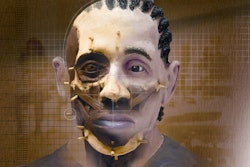The scene is all too familiar to most of us. You check your mailbox before briefing, and see it: the dreaded subpoena ordering you to another court appearance. You mark the date on your calendar, but what happens after that? How do you prepare to testify in a case?
Court appearances are as common as briefings and car stops in police work. The experience itself can range from countless hours of waiting for your case to be called, to a full day of nerve-wracking testimony. Either way, there are a few simple steps you can take to make the process run a lot smoother. Here are some tried and true tips we can all use to make our court appearances run without a glitch. For some these may be new, but for most of us, consider them a brush-up course in courtroom testimony.
Appearance
Remember the saying, “You never get a second chance to make a first impression?” Well, it’s not only a “Men’s Wearhouse” ad, it’s a very strong truth in police work, especially in courtroom testimony. When a judge and/or jury see you walk in, they get an immediate impression. Make that impression count by dressing the part. Wear a suit or at least a shirt and tie if not your full duty uniform. In any case, be sure you are polished and well put together when you walk into the courtroom. A disheveled appearance tells the judge and jury a lot about your work product. Without knowing it, they’ll rate your case on your appearance right off the bat. Make that impression count.
Be sure to get there well before your trial time, and have a copy of your case in hand when you do. Sit upright and answer the questions confidently while on the stand. Try not to fidget or look bored, and don’t get defensive. The jury probably wants out of there a lot more than you do, so look confident and professional in your testimony.
Preparedness
A polished and professional appearance goes a long way in your credibility, but if you don’t know your case through and through, a good defense attorney will quickly turn your spit and polish into sweat and tears. Believe it or not, some officers don’t look at their report until they are on the stand. Normally, a trial happens about six months after the crime occurred. Since most of us have trouble remembering what we had for breakfast yesterday, this presents a huge problem, and will be the first area a defense attorney will try to attack.
Look over your case well before walking into court. Be sure you also go over the case with your fellow officer, so everyone knows what part they will play in the trial. If you can, it really helps to sit down with the District Attorney and go over the case with him or her, too. At the very least call him or her and find out what they will ask you when you get on the stand. The DA may key on certain areas you weren’t aware were that important. Knowing the questions before they’re asked makes your job a whole lot easier.
Also, make sure you know your qualifications to testify as an expert when necessary. Qualifying as an expert in court is all about documentation. Have the number of arrests, cases, education and other pertinent information handy during the trial so you’ll be ready when cross-examined about your expert status. Nothing impresses a jury or judge more than an officer who knows what he’s talking about and proves it when asked.
Quality of Your Witnesses
As with officers, most witnesses won’t remember every detail of a case six months after it occurs. This is why it’s imperative to go over the case with your witnesses prior to the trial. Oh, and by “prior to the trial” I don’t mean five minutes before they’re called while sitting in the courthouse waiting area. Go over the case with them in advance, and read their statements back to them. Help refresh their memory with your report, just as you do with your own memory.
Also, this helps to make sure the witness is still on the same page as you and the prosecution. Many times a witness will change his or her tune and not want to testify for a variety of reasons, some of which may be valid. Either way, it’s important you know what their intentions are well in advance of the trial date. We’ve all experienced a witness “going sideways” on us on the stand, and it’s not a pretty picture. This happens most frequently in domestic violence and gang related cases. Talk to your witnesses a week or so before the court date, and let them know what to expect during the trial. While it’s just another court date for you, it’s likely the only time they will ever set foot in a courthouse.
These little tips will make a world of difference in any courtroom testimony. Combined with a solid case, they paint a picture to the jury of a confident and well-intentioned officer simply doing his or her job. They also alleviate a ton of stress or anxiety for all officers and witnesses involved, as everyone knows their part of the puzzle and the role they play on the stand. Try to implement them in every court case you handle.

















